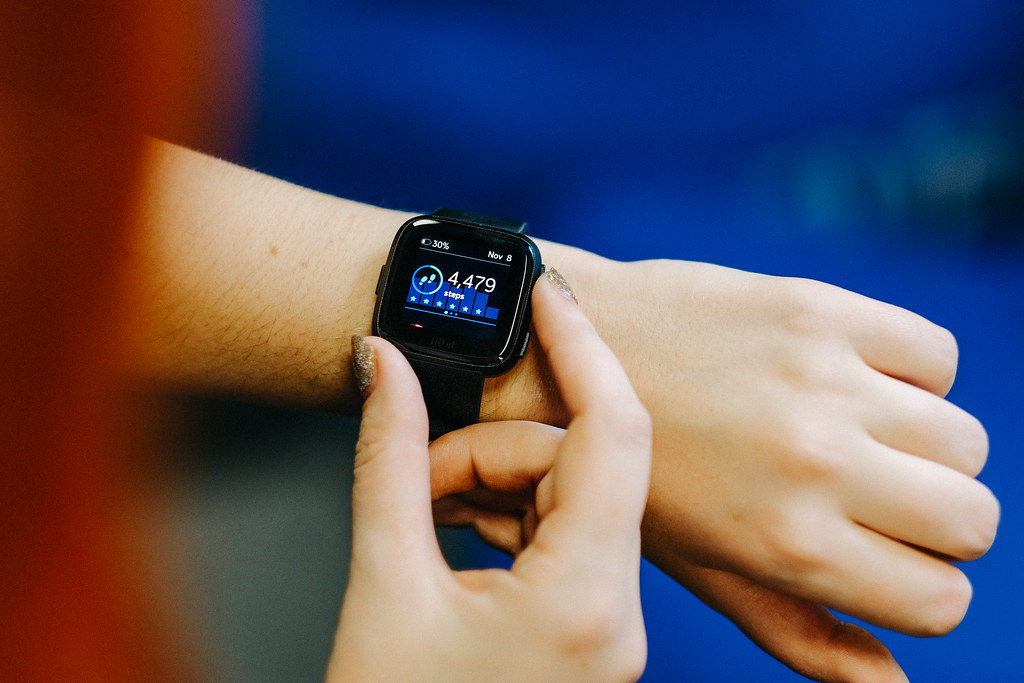Developing a healthier lifestyle and better sleep is important. A fitness tracker can help you meet this goal. It will also track your steps, swimming, cycling, heart rate, blood oxygen levels, temperature, and much more. Not only do you have access to these insights, but it can also remind you to take breaks, drink water, and go to sleep. It will prioritize your schedule and tell you what to do and when.
Best Fitness Tracker Choosing Guide:
If you’re looking to improve your fitness routine in 2024 or want a reliable tool to track your health habits, getting a good fitness or sports watch can help you stay motivated and reach your goals. Studies have shown that using the best fitness trackers can boost your motivation and increase your daily activity. Modern fitness watches offer more than just basic activity tracking. They can handle tasks like taking calls, playing music, monitoring your heart rate, tracking sleep, and even keeping an eye on your stress levels.
But how can you choose the best fitness tracker or smartwatch for you? Since wearable tech is very personal, it’s important to pick something that fits your lifestyle. For example, if you don’t plan to use advanced features like built-in GPS, there’s no need to spend extra money on it. Here is a list of the best fitness trackers and watches for women.
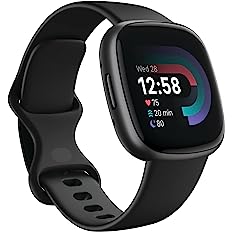
Fitbit Versa 4
Pros:
- Has built-in GPS
- Tracks sleep and gives a sleep score
- Works with voice assistants
Cons:
- The design is a bit bulky
Fitbit’s latest smartwatch is a top choice for our Lab experts because of its easy-to-use design, great tracking features, heart rate monitor, and long battery life (it lasts at least six days or more!). The large, always-on screen makes it simple to check your sleep and activity stats, control your music, view text notifications, or answer calls if your phone is nearby. However, one tester with smaller wrists found the watch a bit bulky. The Versa 4 also works with Amazon’s voice assistants and has built-in GPS for tracking your hikes, bike rides, or swims. It tracks your heart rate all day and night and keeps track of steps, distance, calories burned, hourly activity, active minutes, and floors climbed. You can use the Fitbit app to set goals and view more details. If you forget to log your workout manually, the watch can detect and record your activity automatically.
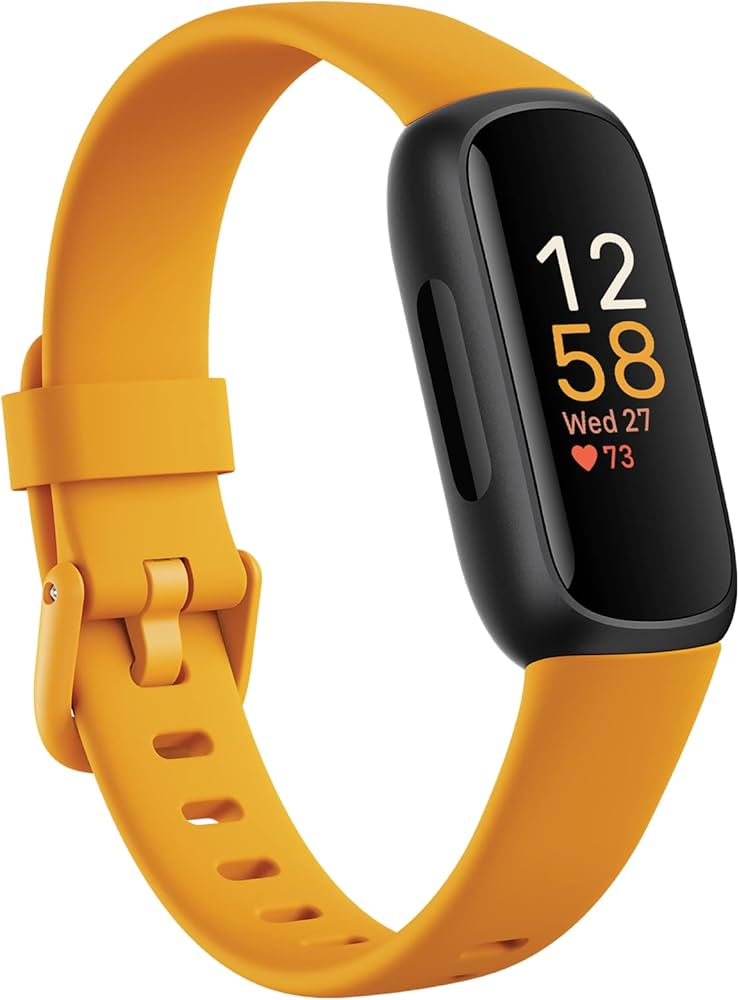
Fitbit Inspire 3
Pros:
- Slim design
- Budget-friendly
- Can be clipped onto clothing using an accessory sold separately
- Excellent battery life
Cons:
- Limited selection of colors
- Not as feature-rich as other Fitbits
Fitbit is a brand that always performs well in our tests, and our experts love this slim, no-frills fitness tracker. It has all the basics you need for tracking activities like steps, distance, and calories burned, making it great for simple workouts such as walking or biking. It also includes a heart rate monitor to track your exercise more accurately. Testers found the display easy to read even though it’s smaller, and the tracker got high marks for its design, functionality, and ease of setup. “I often forgot I was wearing the Fitbit during workouts because it felt so light,” one tester said. If you don’t like wearing a fitness tracker on your wrist, you can get a clip to attach it to your clothing or sports bra. You can swim with this tracker up to a depth of 50 meters, and the battery lasts up to 10 days. The only downside is that the Inspire 3 comes in just three colors, but for its affordable price, that’s a minor issue.
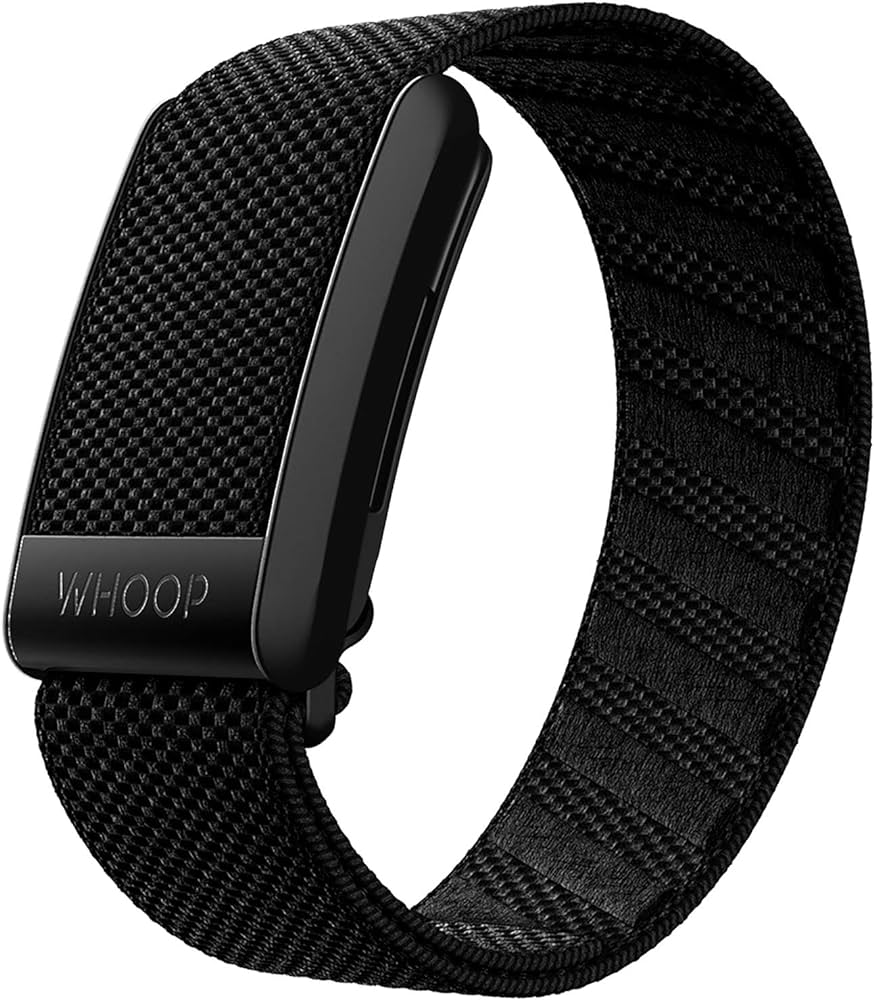
WHOOP 4.0
Pros:
- Minimalist design
- GH Fitness Awards winner
- Easy-to-use app
- Comfortable, according to testers
Cons:
- Subscription required
It collects data on everything from your sleep to blood oxygen levels, skin temperature, and heart rate. Although the Whoop 4.0 requires a subscription (costing $30 per month or $239 per year), our experts believe it’s worth the investment because it’s comfortable and versatile. We like that the app is easy to use and shows health metrics in a clear way. “The sleep tracker on the WHOOP was my favorite feature,” said one tester. “Tracking my sleep (or lack of it) was eye-opening, and the app’s information helped me build better habits.” What sets the Whoop apart from other fitness trackers is that it doesn’t have a display, which some testers appreciated. Also, you can choose from various bands to match your style, and every purchase from the website comes with a lifetime warranty. “It’s very comfortable and doesn’t feel like a bulky smartwatch,” said another tester.
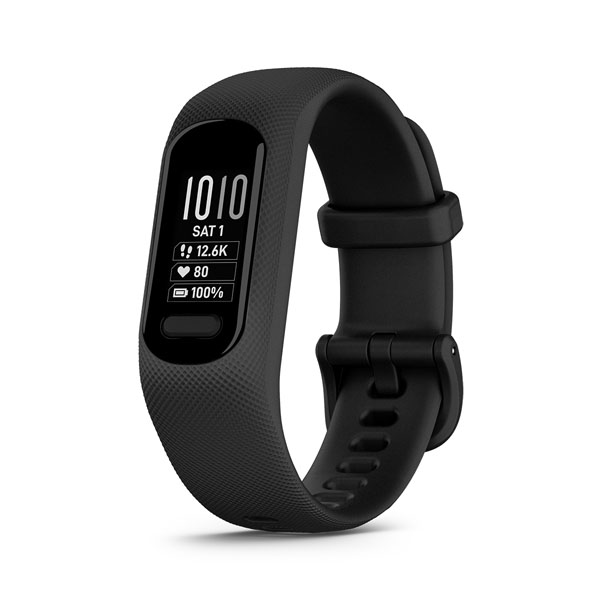
Garmin vívosmart 5
Pros:
- Top-performing brand in Lab tests
- Includes Body Battery energy monitor
- Slim design
- Built-in timer for activities like running, walking, and swimming
Cons:
- Limited colors
When you think of Garmin, you probably think of fitness. Garmin is known for its advanced running watches, but our experts prefer the vívosmart 5 for swimming. It’s slim and lightweight, so it won’t weigh you down while you swim. You can wear it all day because it’s both swim- and shower-proof, and the battery lasts for seven days. It also tracks your steps, stress levels, and shows your “Body Battery” energy levels to help you know when you need rest. Our experts also like the built-in timer for activities like swimming, walking, and running. It tracks your sleep in detail, including light, deep, and REM sleep, and your movements throughout the night. The vívosmart 5 shows calls and text notifications, and if you have an Android phone, you can reply to messages from the watch. The only downside is that it comes in just four colors.
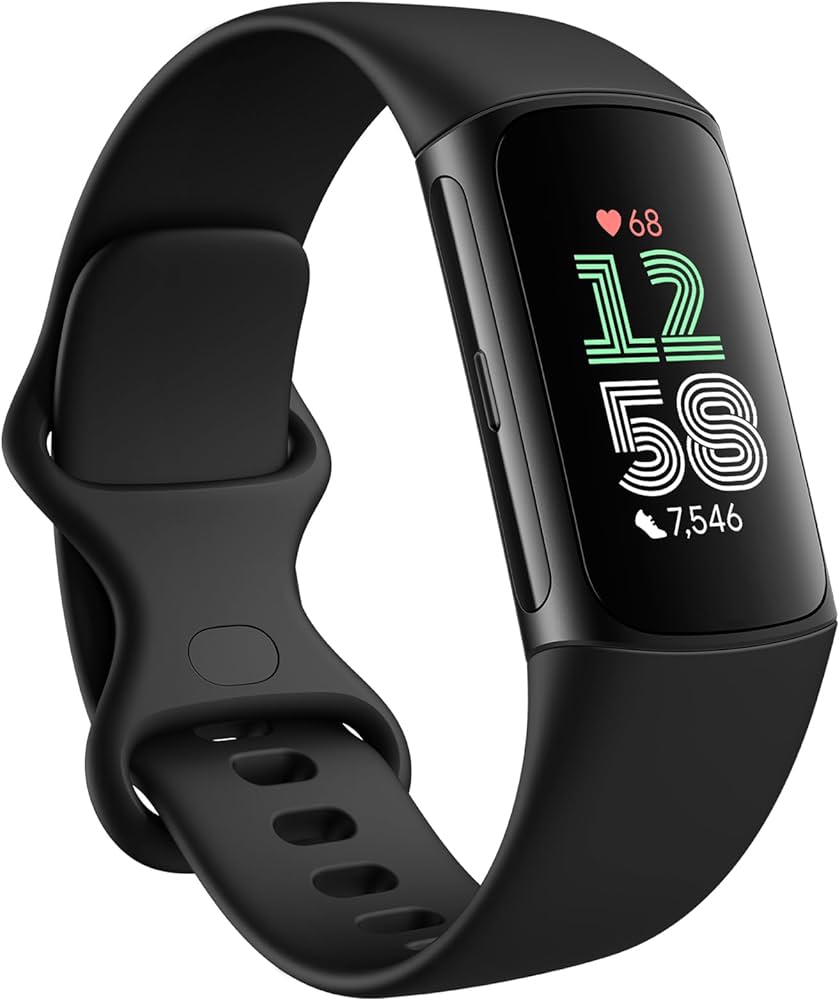
Fitbit Charge 6
Pros:
- Features built-in GPS
- Heart rate and blood oxygen monitors
- Great battery life
Cons:
- Only available in three colors
With its lightweight design and week-long battery life, this fitness tracker is easy to wear every day if you mainly want to track your steps. It offers many of the same features as other Fitbit models, such as being water-resistant up to 50 meters, measuring heart rate and blood oxygen levels, and more—just without the bulk. Testers found it comfortable and easy to wear, and it helped them move more and be more active overall. “The step count is motivating, and the sleep tracking seems accurate,” said one tester. This model also includes built-in GPS for better tracking of outdoor runs and comes with a six-month free trial of Fitbit Premium. This gives you access to advanced analytics, like a detailed breakdown of your sleep score and a wellness report that summarizes your activity, sleep, heart rate, and more. It’s available in three colors—black, white, and coral—but you can buy a different band from Fitbit’s accessories for a more stylish look.
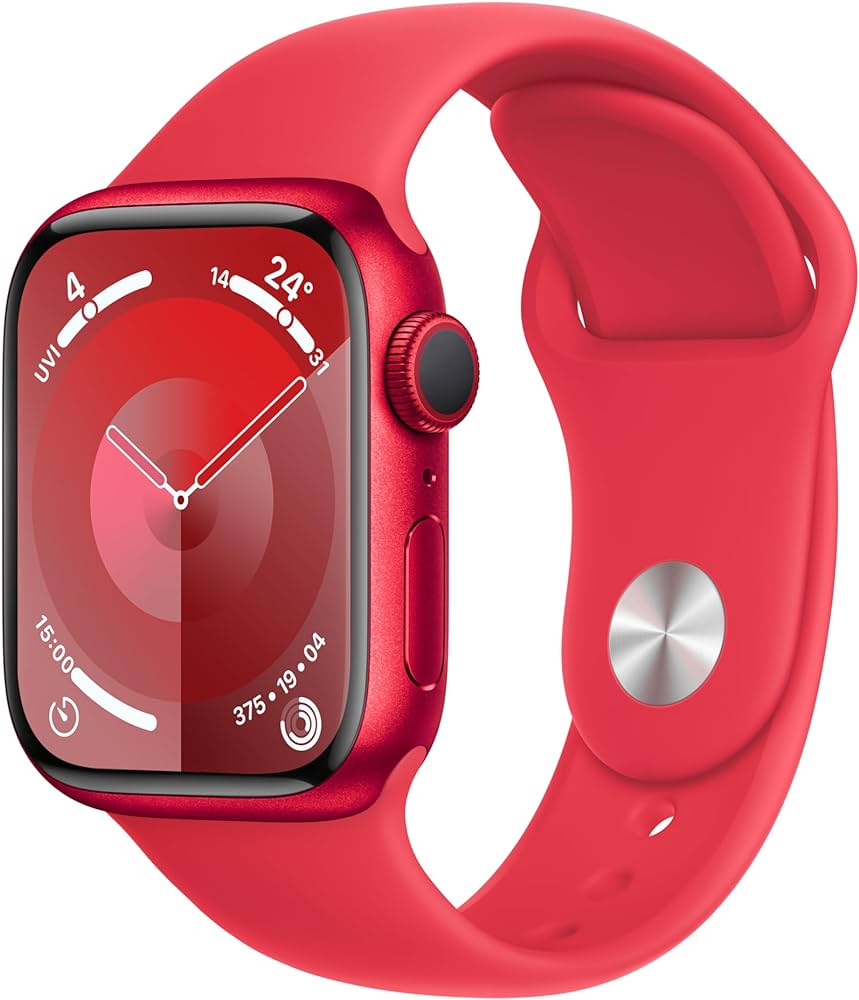
Apple Watch Series 9
Pros:
- Top-tested brand
- Large retina display
- Works seamlessly with iPhones
- Can make and receive calls and texts
- Available in numerous shades, materials, and band combinations
Cons:
- Expensive
- Battery life could be longer
The Apple Watch Series 9 is very popular for a good reason. If you use an iPhone, this watch works really well with other Apple products like AirPods. With this watch, you can track various workouts, including running, yoga, HIIT, and swimming (it’s water- and dust-resistant). Apple offers two apps—Health and Activity—to show your stats, and there’s also Apple Fitness+ for home workouts. While the watch is expensive, it’s more than just a fitness tracker; you can make calls, send texts, and use Apple Pay with it. Our experts liked the Series 9’s large, bright display, but they found it a bit of a hassle to charge nearly every day. Some testers also thought it was too big and uncomfortable to wear while sleeping. It comes in many colors, materials, and band styles.
How to Choose the Right Fitness Tracker or Watch
Budget: Fitness trackers and watches usually cost between $100 and $500 or more. More expensive models often have extra features. Make sure you’ll use these features if you’re spending more money.
GPS: Built-in GPS is useful for tracking things like hiking or running routes, distance, and pace. However, GPS watches are often more expensive. If you’re not sure you need GPS, consider whether you can use your phone’s GPS instead, though this means carrying your phone with you.
Battery Life: If you don’t want to charge your tracker often or tend to forget, check the battery life. It can range from about 18 hours (needing daily charges) to up to a month.
Comfort and Fit: Trackers and watches come in different sizes and shapes. If you have small wrists, look for a smaller or slimmer watch face to avoid it feeling bulky. Also, check if the band is comfortable, workout-friendly, and easy to clean.
Water Resistance: If you plan to swim with your watch, make sure it’s water-resistant. Check how deep it can be submerged and if there are any time limits for underwater use.

